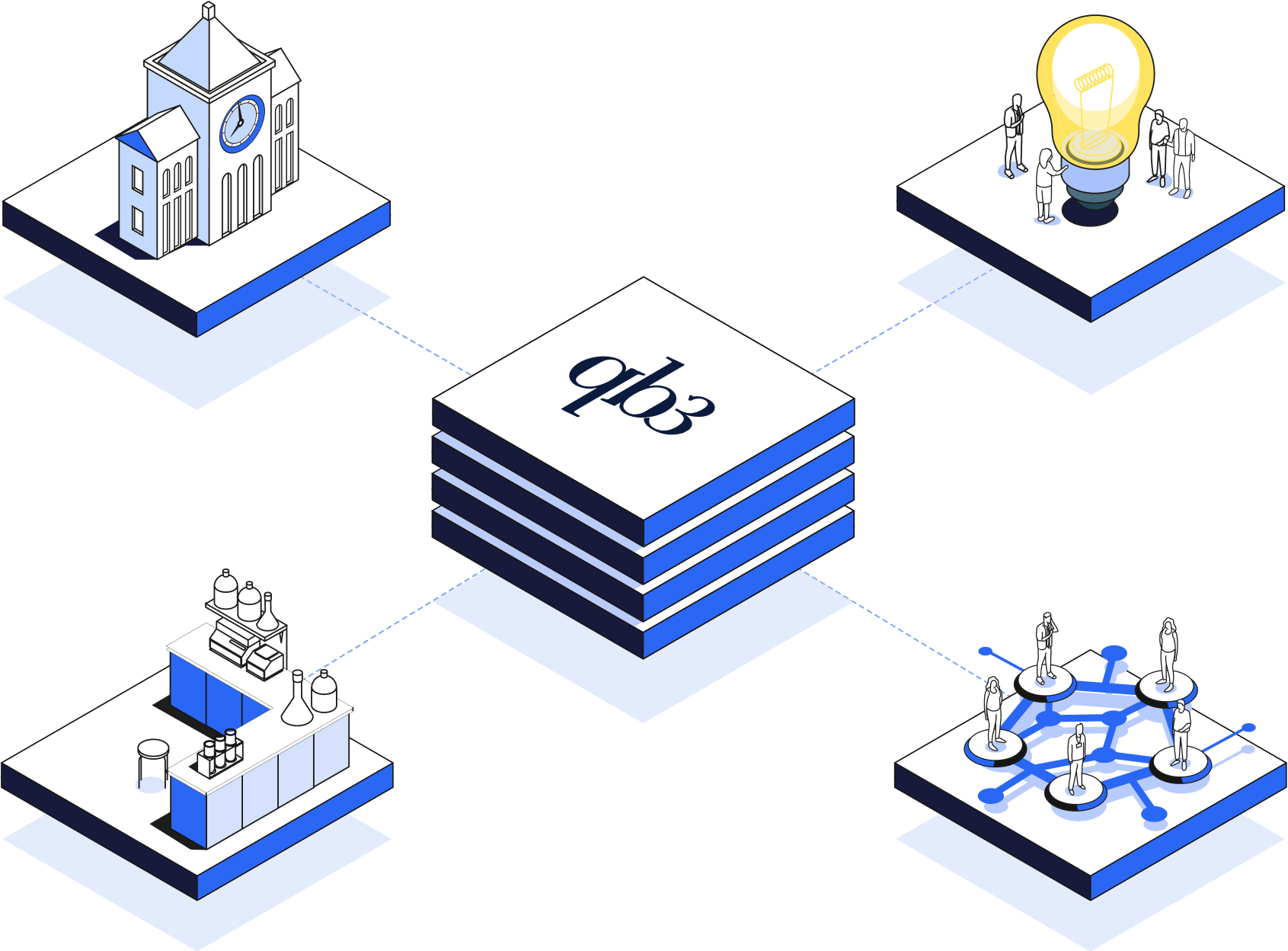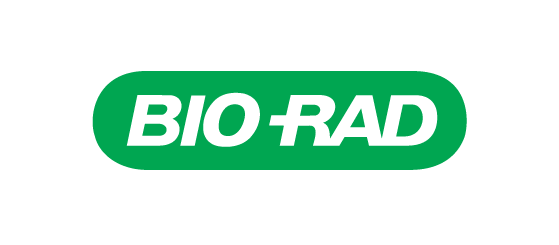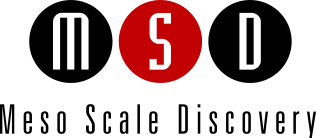Homepage





-
About Us
Bakar Bio Labs is a world-class incubator for life-science startups. Now open to teams from around the world so anyone can leverage all that UC Berkeley offers.
Learn more -
Companies
Get to know our tenants, the hardworking innovators at the core of our community.
Learn more -
Facility
We enable bio startups to hit the ground running and focus on advancing their technology.
Learn more -
Resources
At Bakar Bio Labs, we connect you to sophisticated resources from UC Berkeley and the Bay Area, tailored to early-stage entrepreneurs.
Learn more -
Campus Programs
We’re a gateway to the biotech world for top academic talent at UC Berkeley.
Campus Programs

Everything that a bio-entrepreneur needs, all in one location.
There has never been a shortage of entrepreneurs with great ideas designed to tackle the most pressing global challenges — from human health to environmental sustainability. But to grow those ideas into successful ventures, entrepreneurs need space, equipment, and multiple connections to a vibrant ecosystem. That’s why we created Bakar Bio Labs at UC Berkeley. Bakar Bio Labs is built to be the foundational hub for resources where startups thrive.
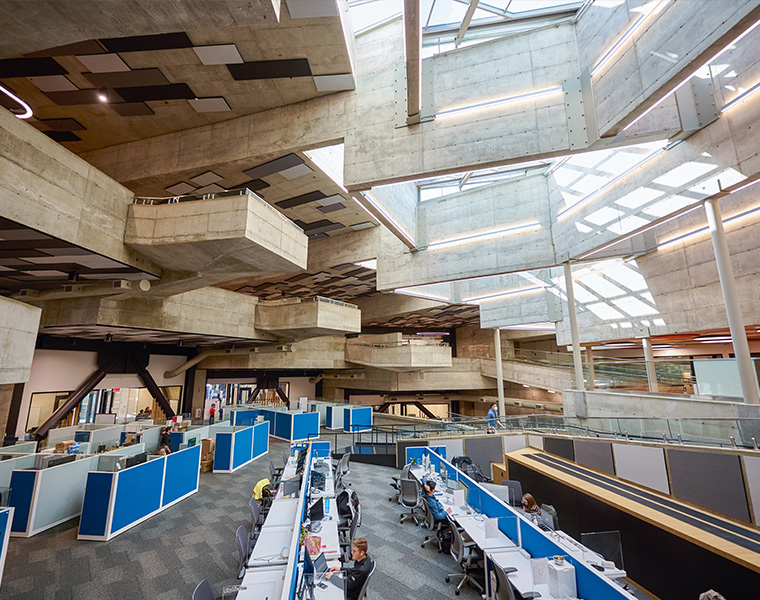
News & Events

Transition is transforming copper mining, supercharging rock-munching microbes
The company’s performance-maximizing additives boost ore-eating organisms, for cheaper, greener biomining Read post
Jill Fuss, champion for science and tech entrepreneurship, awarded the 2026 QB3-Bakar Labs Award for Entrepreneurship and Innovation
We are delighted to announce that Jill Fuss, managing director of Activate Berkeley, was awarded the QB3-Bakar Labs Award for Entrepreneurship and Innovation. The award celebrates innovation and enterprise across the life science sector by spotlighting thinkers and leaders who have not only excelled in their own careers but also work to strengthen the broader community of bio-entrepreneurs. Read post
Unique Almond Variety Generates Exciting Times for Plant Genetics
With 3,000 miles between them — and not much precedent behind the wheel — Stephen Dellaporta, in New Haven, CT, and Tom Burchell, in Oakdale, CA, began a gene-editing partnership in 2019. Their destination: creation of the first Nonpareil almond that is self-compatible and pollen cross compatible with any other almond variety. “When Tom and I got started on this project, even though there had been enormous activity and investment by a number of people, nobody had regenerated Nonpareil in tissue culture. It hadn’t been done,” Dellaporta, the founder of agricultural genomics company Verinomics, says. “We had our hands full, Tom and I.” Which says a lot about the task at hand. Verinomics, since 2016, has been integrating genomics, computational biology, and gene editing into breeding programs to accelerate crop innovation. Read post
Vivere Oncotherapies Announces >$10M Funding to Develop Targeted Therapies for Solid Tumors
Vivere Oncotherapies, a UC Berkeley spin-out developing cancer therapies that activate the immune system to detect and destroy cancer cells in immunologically cold tumors, today announced over $10M in funding from YK Bioventures, Pillar, Berkeley Frontier Fund, Freeflow Ventures and The National Cancer Institute. Leveraging technology that enables engineering of targeted immunotherapies, Vivere will develop transformative treatments for difficult-to-treat cancers that otherwise evade immune system detection and for which there are few effective treatments. Read post
Renasant Bio Named to BioSpace’s NextGen: Class of 2026
Renasant’s post on LinkedIn: “We’re honored to be recognized by BioSpace’s NextGen: Class of 2026 — a list celebrating the most promising early-stage life sciences companies driving innovation and growth in a challenging market. Being included among this outstanding group reflects the hard work and dedication of our entire team as we advance next-generation disease-modifying therapies for patients with autosomal dominant polycystic kidney disease (ADPKD). Thank you to BioSpace for this honor — and to our investors, partners, and supporters who share our mission to make a meaningful impact in lives of patients living with ADPKD.” Read post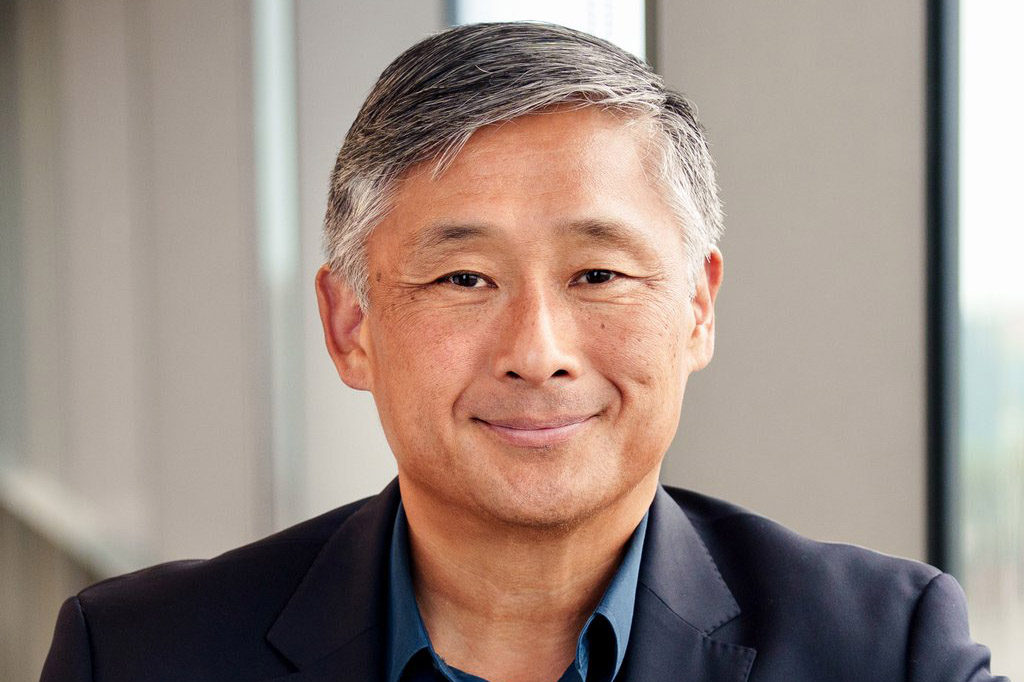
UC Berkeley spinout raises $100 million for gene-therapy approach that ‘unlocks a world of possibility’
A spinout from the labs of University of California, Berkeley, professor Kathleen Collins and the campus’ Bakar Bio Labs incubator, Addition is working on a different way to package and deliver long-lasting, life-changing “genomic medicines.” Addition’s team, now numbering 50, “spent four years with our heads down on the science, and we’re feeling good,” Park said. “It’s a good base to talk to people externally, unstuffing.” The technology is one thing, but there’s another thing that’s got Park excited about Addition: the big picture. Addition’s approach opens the possibility of delivering one-shot-and-done therapies or redosing therapies for less. Read post
Addition Tx does the math and emerges from stealth with $100M, biotech vets on exec team
It’s early days for the startup, but its core tech is centered on its all-RNA, nonviral, lipid nanoparticle-based PRINT (Precise RNA Mediated Insertion of Transgenes) platform. The idea is to create “safer, durable, one-time therapies, overcoming limitations of current genetic medicine modalities,” the biotech said in a Dec. 17 statement. Details on disease targets are thin on the ground, but Addition says it is seeking to “redefine how chronic and rare diseases are treated.” Initial preclinical work is slated to begin next year. One area of work Addition has already spotlighted is HIV. Using a Gates Foundation grant, Addition will use one of its so-called PRINTed programs that aim, with a single dose, to allow endogenous production of antibodies to “provide lifetime protection against HIV.” Read post
Small Molecules to Correct a Rare Kidney Disease: Emily Conley on the Long Run
The big idea at Renasant is to develop oral small molecule drugs to treat patients with autosomal dominant polycystic kidney disease, known as ADPKD. Patients with this disease develop cysts on their kidneys that sometimes cause the kidney to balloon in size and grow into 30-pound dysfunctional, painful and swollen organs. Scientists think there’s a way to stop it. Renasant is developing small molecule correctors and potentiators that target the polycystin protein abnormalities that drive the disease. If the drugs work as conceived, they would enable people to avoid the grim fate of kidney dialysis or transplant. An estimated 300,000 patients in the US and Europe have the disease, which technically makes it rare, but not that rare. Read post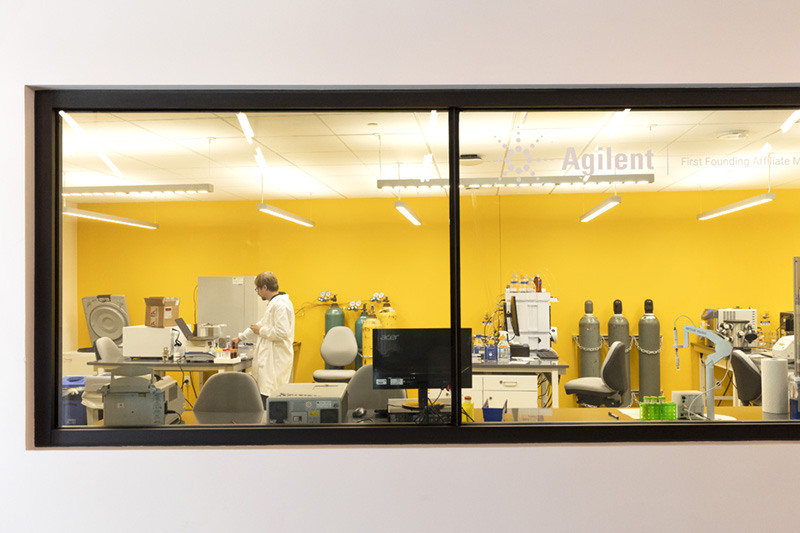
The Biotech Founder’s Guide to Finding Affordable Lab Space That Supports Growth
Bakar Bio Labs at the University of California Berkeley and Venture Catalyst at the University of California Davis are two examples that offer these types of opportunities. For instance, UC Berkeley is one of the leading public universities in the country, particularly in STEM fields, explained Gino Segrè, PhD, managing director of Bakar Bio Labs, a life science–focused incubator for startups. “So you’re getting all of that when you lease space at Bakar Labs—access to the campus, shared resources, advanced equipment, paid-for student interns, and perhaps faculty advisors—all set in the backdrop of a very vibrant urban environment.” Read postOur affiliates

Ready to run?
Startups need to focus on making milestones, not managing equipment.
Bakar Bio Labs maintains tissue culture facilities, a freezer farm, fume hoods, basic benchtop equipment and plenty of analytical instruments. Optional lab support services can also make for quick starts that help get results fast.



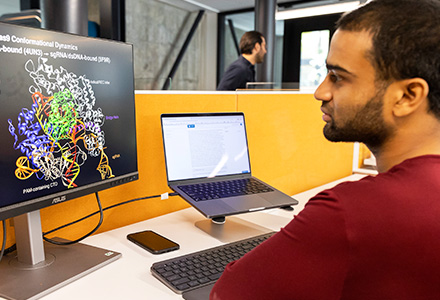
At UC Berkeley
Bakar Bio Labs is just steps from UC Berkeley’s world-renowned faculty and more than 40,000 students who train in top programs including science, engineering, law and business. Dotting the campus is a network of core facilities that feature a wide range of advanced equipment and services for use by startups. Recruiting student talent and scientific co-founders couldn’t be easier.
Scale means community

Today’s best startups blaze a trail all their own, but they don’t do it alone.
They build their support network to help them navigate the multiple challenges they face. At Bakar Bio Labs, tenants join a community of as many as 50 like-minded teams willing to share the scientific and business insights that help them advance. The incubator spans more than 40,000 square feet of lab and office spaces within the fully renovated Woo Hon Fai Hall, the iconic former home of the Berkeley Art Museum. With so much going on, investors, industry partners and new talent are already taking notice.
Bringing the innovation community together.
Funding raised to date
Bakar Bio Labs gives startups great exposure to savvy, motivated investors and industry business development.
Tenant and alumni companies
We welcome companies from all sectors of life science who have a need for specialized wet lab operations.
Affiliations
We’re building a mutually beneficial ecosystem that brings startups together with biotech, pharma, VC, law firms and banking.
Built for startups. For more than 20 years, QB3 has been the University of California’s center for innovation and entrepreneurship in life science. Through pitch summits, seminars, symposia, podcasts, office hours, internships, and workshops QB3 educates, connects, and elevates the entrepreneurial ecosystem.
